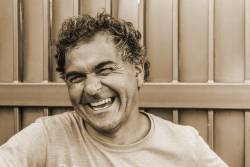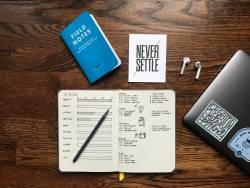
Best Quotes About Willpower - From Kelly McGonigal’s Book & Roy Baumeister’s Book

A lot of great books like Gary Keller’s “The One Thing” teaches people to do their most important thing early in the morning when they have a lot of willpower and use willpower to turn their important task into daily habits so that doing the task becomes an automatic process that doesn’t need much willpower. This is wonderful advice and it works most of the time. However, when we still feel that we don’t have enough willpower, is there anything that we can do about it? Fortunately, there are two great books about willpower:
- “The Willpower Instinct” by Kelly McGonigal
- “Willpower: Rediscovering the Greatest Human Strength” by Roy Baumeister and John Tierney
In the two books, we basically learn about three things:
- how to manage it by doing the most important thing when we still have a lot of willpower left in the day
- how to train ourselves to have more willpower for each day
- how to get more willpower when we really need it.
Let’s now look at some of the best quotes from the two books:
“If you tell yourself that you’re ‘good’ when you exercise and ‘bad’ when you don’t, then you’re more likely to skip the gym tomorrow if you work out today. Tell yourself you’re ‘good’ for working on an important project and ‘bad’ for procrastinating, and you’re more likely to slack off in the afternoon if you made progress in the morning. Simply put: Whenever we have conflicting desires, being good gives us permission to be a little bit bad.” ― Kelly McGonigal, The Willpower Instinct: How Self-Control Works, Why It Matters, and What You Can Do To Get More of It
The above quote by Kelly McGonigal explains probably one of the most interesting things about willpower. If we label something as “good” and label something as “bad”, we would make ourselves do a little bit of bad stuff once we are done with some good stuff. In the book, she explains that it’s better to categories things into “things that move you towards your long-term goal” and “things that move you away from your long-term goal”.
“When your mind is preoccupied, your impulses—not your long-term goals—will guide your choices.” - Kelly McGonigal, The Willpower Instinct
When we are mentally fatigued, our mind will go to its default mode. The sad truth is that the default mode of a lot of people likes to eat junk food.
“Neuroscientists have discovered that when you ask the brain to meditate, it gets better not just at meditating, but at a wide range of self-control skills, including attention, focus, stress management, impulse control, and self-awareness.” - Kelly McGonigal, The Willpower Instinct
Meditating is probably the one thing that can change your life. It’s really not that hard to try. Yes, it’s hard to do it well but no one says that you need to be percent to enjoy the benefits.
“You need to recognize when you’re making a choice that requires willpower; otherwise, the brain always defaults to what is easiest.” - Kelly McGonigal, The Willpower Instinct
When you are making a decision, make sure you know whether making that decision takes a lot of willpower. If the answer is “yes”, make sure you are making the decision when you have enough energy left in you. Otherwise, it’s easy to pick the easiest choice which, in a lot of cases, is not the best choice.
“We all have the tendency to believe self-doubt and self-criticism, but listening to this voice never gets us closer to our goals.” - Kelly McGonigal, The Willpower Instinct
If you ever fail to do what you said you would do, don’t blame or doubt yourself. All the blaming and doubting is time wasting. Reflect on the failure and see if you can find the root cause and improve yourself accordingly.
“When you try to push a thought away, and it keeps coming back to your mind, you are more likely to assume that it must be true.” - Kelly McGonigal, The Willpower Instinct
Don’t try to push a thought, like a craving for unhealthy food, away, be aware of that thought and try to find out whether the thought is due to boredom, nervousness, or loneliness.
“Though our survival system doesn’t always work to our advantage, it is a mistake to think we should conquer the primitive self completely.” - Kelly McGonigal, The Willpower Instinct
It’s not always a bad thing that part of our brain reacts to events with emotions that doesn’t lead to the most rational decision. Sometimes, we can be aware of and reflect on that feeling and see if we can find the root cause of the feeling. It can be an opportunity to learn about ourselves.
“In setting rules for how to behave in the future, you’re often in a calm, cool state, so you make unrealistic commitments…It’s really easy to agree to diet when you’re not hungry… And it’s really easy to be sexually abstemious when you’re not sexually aroused.” - Roy F. Baumeister, Willpower: Rediscovering the Greatest Human Strength
When we end up in a situation that we didn’t expect when we came up with a plan, things that we thought we could do became way too difficult to do. When you make a plan, imagine different bad scenarios so that we can make our plan more realistic and useful.
“Willpower is humans’ greatest strength, but the best strategy is not to rely on it in all situations. Save it for emergencies…, there are mental tricks that enable you to conserve willpower for those moments when it’s indispensable. Paradoxically, these techniques require willpower to implement, but in the long run they leave you less depleted for those moments when it takes a strong core to survive.” - Roy F. Baumeister, Willpower: Rediscovering the Greatest Human Strength
It’s wise to use our willpower to develop good habits. Although developing good habits takes willpower, it’s going to help you in a way that you are no longer going to use up all your willpower everyday, so there is more willpower to use for emergencies.
“Having friends may be great for your mental and physical health. But if your friends are all drinkers and drug users, they may not be much help in restraining your own impulses. They may directly or indirectly pressure you to drink as an integral part of socializing.” - Roy F. Baumeister, Willpower: Rediscovering the Greatest Human Strength
Friends and family don’t necessarily make it easier for you to reach your goals. They may just do the opposite, even if they do actually care about you.
“People struggling with an alcohol or drug problem need social support for not drinking, and that’s where a group like AA can be vitally helpful. Alcoholics have spent so much of their lives surrounded by drinkers that they can’t imagine the benefits of a different kind of peer pressure.” - Roy F. Baumeister, Willpower: Rediscovering the Greatest Human Strength
Being part of the right group helps make achieving your goal easier.
“If you’re someone who can’t control your drinking or your smoking, you can’t look on that drink or cigarette as an isolated event. You can’t have one glass of champagne because you’re toasting your best friend’s wedding. You need to see the one lapse as a precedent that will establish a long-term pattern.” - Roy F. Baumeister, Willpower: Rediscovering the Greatest Human Strength
Don’t treat eating a piece of potato chip as a single event, if you know that the first piece will lead to 3 consecutive bags.
“Forget about self-esteem. Work on self-control.” - Roy F. Baumeister, Willpower: Rediscovering the Greatest Human Strength
Baumeister found that you will increase your self-esteem when you have some sort of success. In order to increase your chance of succeeding, you need to improve your self-control.
“Success is conditional—but it’s within your reach as long as you have the discipline to try, try again.” - Roy F. Baumeister, Willpower: Rediscovering the Greatest Human Strength
A lot of people say that success is a choice. But the prerequisite of making that choice is to have the self-control to repeatedly do actions that lead you closer and closer to success.
“Strictly speaking, ‘impulse control’ is a misnomer. You don’t really control the impulses. Even someone as preternaturally disciplined as Barack Obama can’t avoid stray impulses to smoke a cigarette. What he can control is how he reacts: Does he ignore the impulse, or chew a Nicorette, or sneak out for a smoke? (He has usually avoided lighting up, according to the White House, but there have been slips.)” - Roy F. Baumeister, Willpower: Rediscovering the Greatest Human Strength
Learning how to self-control doesn’t mean learning to get rid of your thoughts or cravings. It’s about learning how to respond to them.
Final Thoughts
Both McGonigal's “The Willpower Instinct” and Baumeister’s “Willpower: Rediscovering the Greatest Human Strength” are based on the theory that willpower is a limited resource. However, Carol Dweck, psychologist and author of the famous book “Mindset” suggests that willpower is only limited if you believe so. The two seemingly contradicting theories are probably going to make a great story that we are going to explore in another article.













